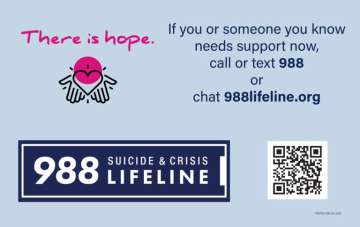Psychiatry Services
Our psychiatrists rank among the best in the nation, offering a range of specialized outpatient programs for children, adults and geriatric patients.


Why choose UCLA Health for psychiatry and behavioral science?
The UCLA Health Department of Psychiatry and Behavioral Sciences cares for patients with mental health conditions, developmental disabilities and behavioral disorders. We provide targeted, individualized care for patients of all ages through a range of outpatient services.
Highlights of our psychiatric office services include:
- Multidisciplinary Care: We use a team approach that incorporates the expertise of multiple specialists. Our team includes specialists in psychiatry, neurology, speech pathology, pediatrics and more. We offer specialized outpatient clinics specifically for children, adults and geriatric patients.
- Personalized approach: Our goal is to provide comprehensive, personalized care. We partner with patients and family members to create individualized treatment plans.
- Recognized excellence: U.S. News & World Report consistently ranks us among the best in the nation for psychiatry. When you choose UCLA Health for psychiatric care, you’re choosing a team with nationally recognized excellence.
Our psychiatry services
We offer multiple outpatient clinics geared toward children, adults and geriatric patients. Our outpatient programs include:
Child and adolescent programs
We offer several general and specialty clinics focused on conditions such as:
- Anxiety
- Attention-deficit hyperactivity disorder (ADHD)
- Autism spectrum disorders (ASD)
- Bipolar disorder
- Learning disabilities
- Pediatric depression
Our specialists also provide in-depth developmental and psychiatric assessments for adolescents. We focus on research-based treatments, including cognitive behavioral therapy (CBT) and family-focused therapy (FFT).
Adult programs
Our team provides comprehensive clinical services to those between age 18 and 65. A range of general outpatient clinics and specialty clinics focus on treating disorders such as:
- Addiction disorders
- Anxiety disorders
- Mood disorders
- Psychotic disorders
We provide evidence-based treatment modalities, including CBT and interpersonal therapy (IPT). Several of our faculty also provide one-on-one counseling. Learn more about our adult programs.
Geriatric programs
Patients 65 and older have access to specialized psychiatry services designed to meet the unique needs of older adults. Our Geriatric Evaluation Clinic provides comprehensive outpatient psychiatric evaluations and medication management. We treat a range of conditions, including:
- Anxiety
- Chronic pain
- Depression
- Insomnia
- Psychosis
Our team may also provide neuropsychological evaluations as needed.
Conditions psychiatrists treat
Our team treats children, adolescents and adults with a range of mental health concerns. Conditions we treat include:
- Anxiety: Excessive, intense or persistent worry about everyday situations
- Attention-deficit hyperactivity disorder (ADHD): A common childhood disorder that involves difficulty paying attention or controlling impulses
- Autism spectrum disorders (ASDs): A group of disorders that can include challenges with social interactions, communication and behavior
- Bipolar disorder: Unusual shifts in mood that include manic highs and depressive lows
- Depression: Persistent feelings of intense sadness or loss of interest in activities
- Fetal alcohol spectrum disorders: A group of physical, mental or behavioral issues that can occur when a mother drinks alcohol excessively during pregnancy
- Obsessive compulsive disorder (OCD): Recurrent, interruptive thoughts that lead to repetitive behaviors
- Psychosis: Conditions that affect a person’s sense of reality, possibly causing hallucinations or beliefs that aren’t based in reality (delusions)
- Substance use disorders: A mental health disorder in which a person is unable to control their use of harmful substances, despite negative consequences
Psychiatric treatments we offer
Our team uses a range of treatments to help patients manage their mental and psychological health. Treatment options include:
- Cognitive behavioral therapy (CBT): A therapist helps you challenge or redirect negative thoughts and behaviors.
- Electroconvulsive therapy (ECT): A small delivery of electrical energy to the brain can help with thought disorders, depressive disorders or bipolar disorder.
- Exposure and response prevention (ERP): Interacting with images, situations or objects that make you anxious can help you learn to cope with them.
- Family-focused therapy (FFT): A treatment for bipolar disorder, FFT involves family participation in learning bipolar disorder symptoms, coping skills, communication strategies and conflict resolution.
- Group therapy: A therapist teaches problem-specific strategies to a group of patients who share similar challenges or symptoms.
- Interpersonal therapy (IPT): IPT focuses on current problems and behaviors to help improve interpersonal interactions.
- Medication management: Medicines such as antidepressants or antipsychotics may help relieve symptoms of mental health conditions.
- Transcranial magnetic stimulation (TMS): Short, repeated pulses of electromagnetic energy alter nerve cell activity in the brain to treat depression.
Meet our psychiatry team
Our team includes specialists in pediatric, adult and geriatric psychiatry. We provide a range of services to meet each patient’s needs.
Contact us
Call 800-825-9989 or 310-825-9989 to request an appointment with a psychiatrist at UCLA Health.
Find your care
We provide targeted care for pediatric, adult and geriatric patients. Call 800-825-9989 or 310-825-9989 to learn more about our psychiatry services.

